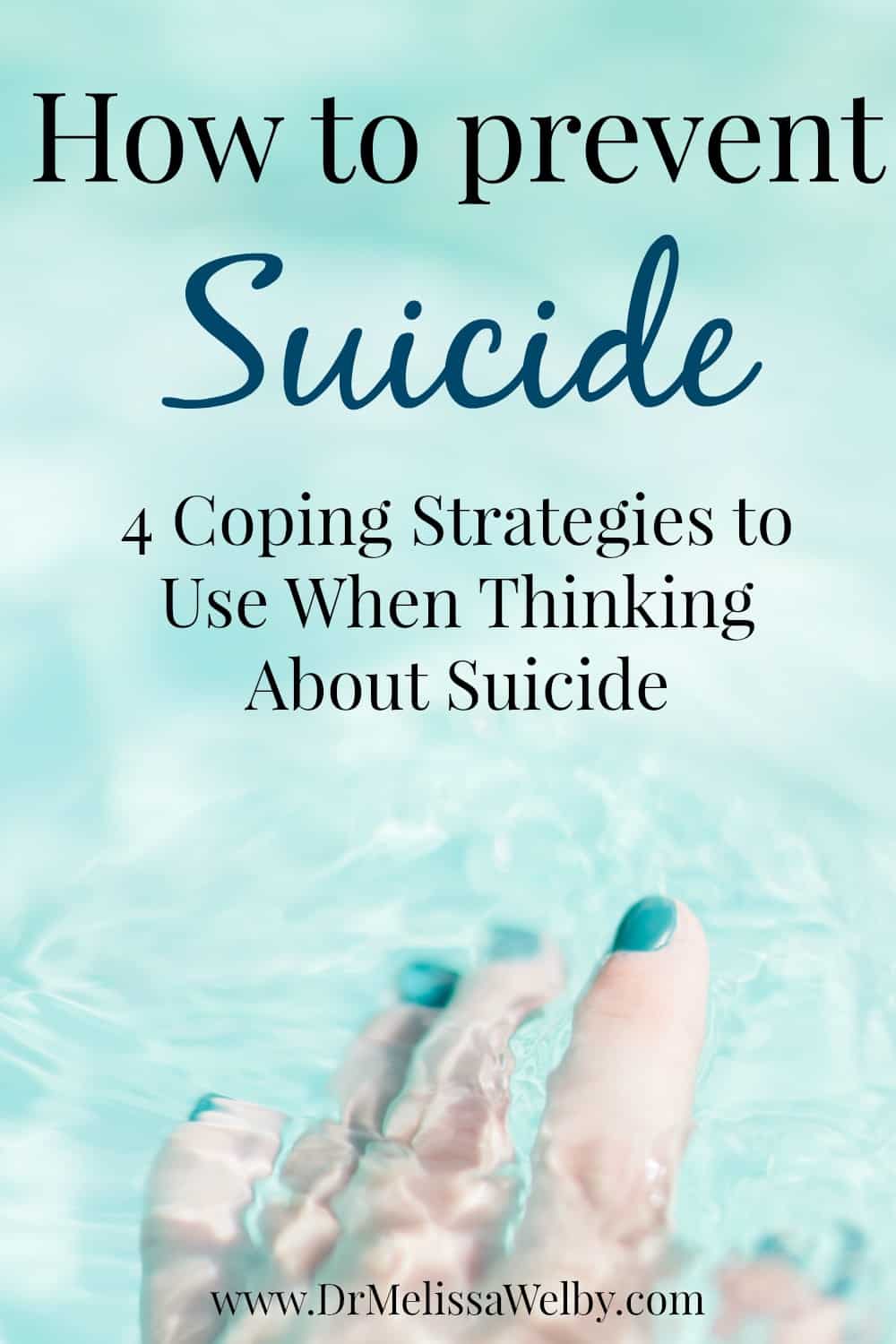Because distress is so uncomfortable people understandably want to make it go away as soon as possible. At the moment of intense emotions, it feels like it may never end. Extreme emotions distort thinking and sometimes people make choices that cause more harm (self-injury, suicide attempt, telling off your boss, ending a relationship, etc…). These choices are an attempt at coping strategies and calming the distress, but ultimately they don’t support recovery. Learning distress tolerance skills to manage emotion in ways that aren’t harmful will help you remain on the path of recovery and mental wellness.
Category: Suicide Prevention
How to Prevent Suicide: 4 Coping Strategies to Use When Thinking About Suicide
Preventing suicide takes forethought and planning, not only in the world as a whole to create better support systems and treatment, but for individuals struggling with how to deal with suicidal thoughts. Creating a plan for how to prevent suicide and manage emotions at the height of intense feelings is a lot to ask of anyone. But coming up with a plan ahead of time for how to manage distress and suicidal urges can help allow the feelings to pass. This post includes coping strategies to manage distress, problem-solving techniques to help cut down on crisis, and suggestions on how to create coping cards and a hope box to use when thinking about suicide.
Suicide Prevention Plan: 5 Tips to Deal With Thoughts of Suicide
Preventing suicide does not happen by offering simple platitudes (“You have so much to be grateful for”) or by saying comments like: “It’s wrong”, “It’s selfish”, etc…but by coming up with a focused suicide prevention plan. Suicide and suicide thoughts are a response to incredible pain. The pain seems unending to the person experiencing it. Some people experience recurrent thoughts of suicide. Coming up with a plan for dealing with suicidal thoughts is essential and takes hard work in order to prevent suicide. The pain must be addressed and a safety net put in place.
A Psychiatrist’s Take on Suicidal Thoughts and Suicide Prevention
As a psychiatrist, part of my job is to talk to people about suicide. In my profession, hearing about suicidal thoughts is not uncommon. Read this post if you need help with suicidal thoughts or if you want to learn how to help someone who is suicidal. Suicide prevention hotline: 800-273-8255
Suicidal thoughts are a symptom like all other symptoms that I consider in my assessments. Often people are fearful that if they admit to feeling this way I will instantly hospitalize them against their will. (Not true — there are only certain situations when I have to which I will explain later).









